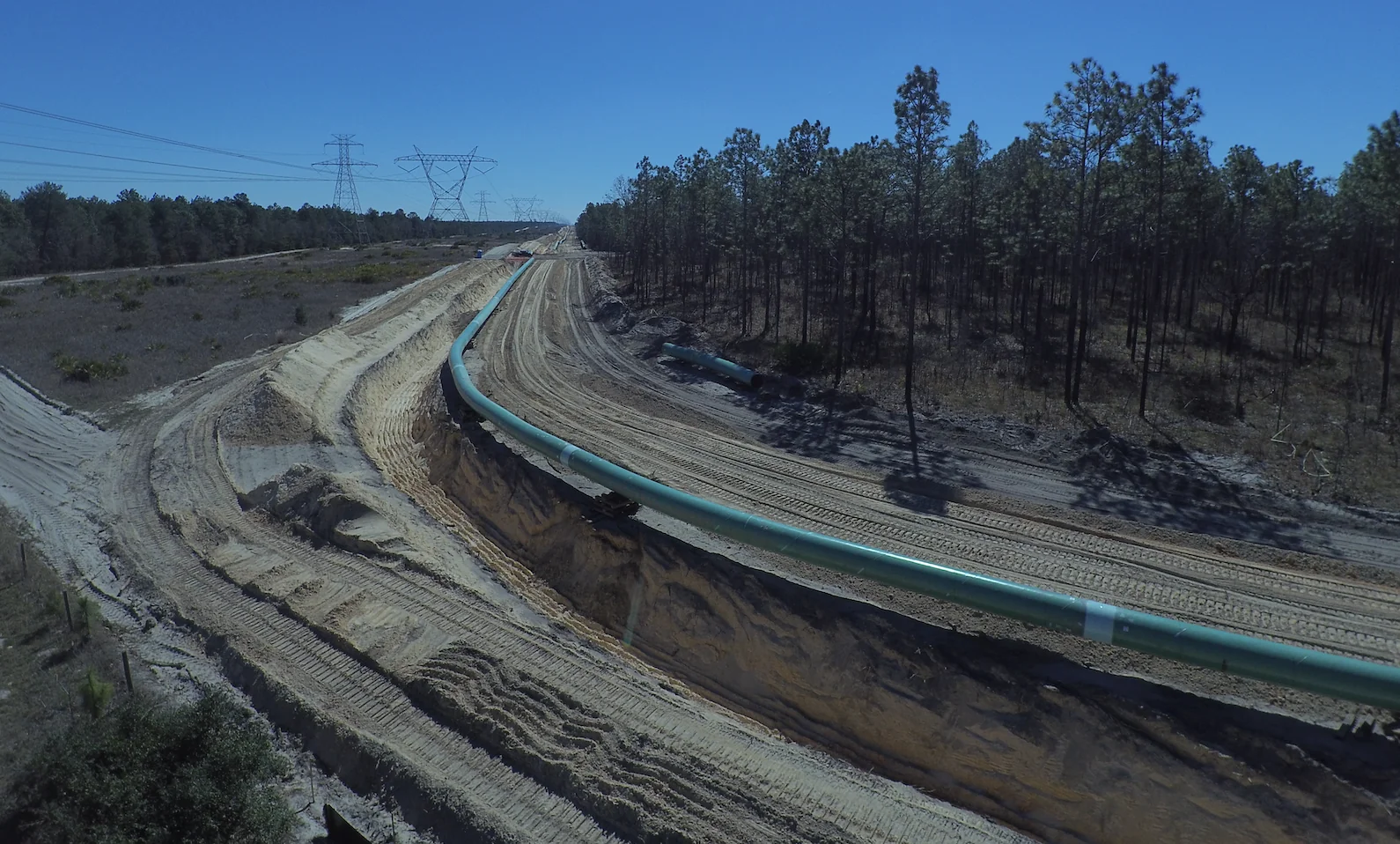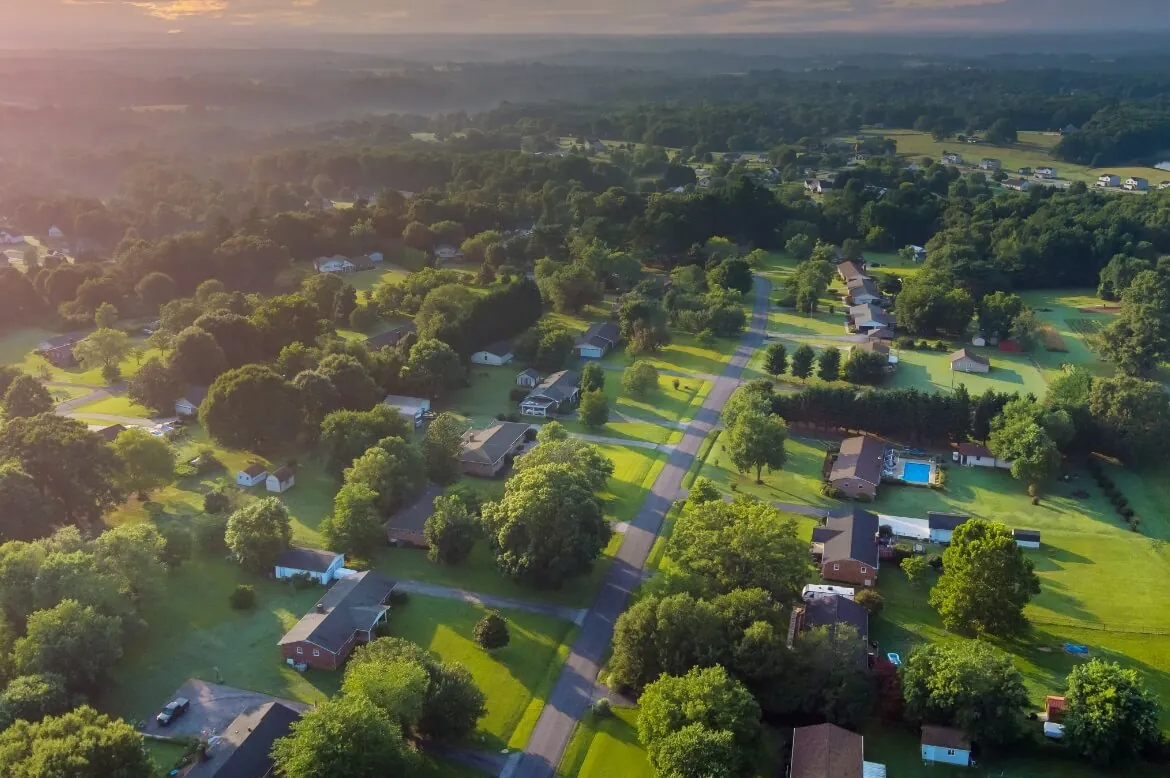
The first jury trial involving landowners who had easement rights taken by Sabal Trail Transmission, LLC, under the power of eminent domain proceeded in federal court in February 2018 before U.S. District Court Judge James S. Moody, Jr. in Ocala, Florida.
Landowners Chuck and Jan Sunderman had their 40-acre tract of land in Bay Lake, Florida, split down the middle by Sabal’s natural gas pipeline a distance of 1,336 feet. Sabal, owned by Spectra Energy, NextEra Energy, and Duke Power, will use the 36-inch diameter pipe with a maximum operating pressure of 1,456 psig to transmit up to 1 billion cubic feet of natural gas a day to powerplants in Florida owned by Duke Energy and Florida Power & Light.
Sabal filed its eminent domain cases in federal courts throughout Georgia and Florida in March, 2016. Soon after, Sabal was granted immediate possession of the condemned easements to begin pipeline construction. Although unable to stop Sabal from taking their land, landowners like the Sundermans have had to litigate over the measure of compensation.
Sabal contended that because its pipeline is buried 4 feet underground, there are no damages to market value other than for bifurcation – out of sight, out of mind. In fact, in Florida, Sabal paid 3 appraisal firms in excess of $8 million to prepare studies to show that market participants do not distinguish natural gas pipelines from other pipelines that, say, transmit water. Of course, these appraisal firms have long-standing track records working for pipeline companies, always finding in their studies that there is no difference in the amount buyers or sellers transact on land with or without pipelines.
Landowners are left with the choice to accept a few cents on the dollar in settlement or brace themselves for a long hard fight in court over the amount of compensation to be paid. The Sundermans, for instance, were offered a total of $56,800 by Sabal to settle the matter, paying for the right to use the easement area and a 25% damage to their remaining property. The damages, however, were only attributable to bifurcation.
The Sundermans, however, retained our law firm, Brigham Property Rights Law Firm, to take on Sabal. We represented the Sundermans and approximately 40 other landowners against Sabal. We, of course, are no stranger to condemnation cases. In fact, Andrew Brigham has already distinguished himself as the lawyer who has secured the largest eminent domain jury verdict in Florida state court proceedings in a 2007 case against Jaxport wherein a jury rendered a verdict of $67 million. In fact, it was Andrew’s grandfather that won the case before the Florida Supreme Court in 1950, Dade County v. Brigham, which established that “full compensation” includes the attorneys’ fees and costs as state law.
Our law firm, however, did not act alone. On behalf of the Sundermans, we retained real estate appraiser, Matthew Ray, MAI, Cantrell Ray Real Estate, to prepare a damage study for his firm’s clients. Ray proceeded to put together a study using a technique which appraisers call “Paired Sales Analysis.” It calls for the appraiser to compare sales of impact and non-impact properties, similar in all respects, except one has a pipeline and the other does not. After researching data in six Florida counties, Ray estimated that the measure of compensation for the Sundermans was $310,000, considering a 60% damage for not only bifurcation, but also for aesthetic loss, loss of privacy, public fear, and stigma relating to Sabal’s easement.
In June, 2017, our law firm, together with a other law firms representing landowners, won an important legal victory for his clients against Sabal Trail. We secured rulings from both U.S. Northern District Court Judge Mark E. Walker and U.S. Middle District Court Judge Timothy J. Corrigan who held that, although Sabal Trail was permitted to use the federal eminent domain power, the private company, as a mere licensee, was not to be afforded the same rights and privileges as the federal government when condemning easements for its interstate pipeline. Without any overriding federal interest at stake, the measure of compensation that Sabal Trail would be required to pay would be determined under state substantive law, honoring state sovereignty over its own laws associated with property rights. This being the case, Sabal Trail was required to abide by Florida Constitution’s guarantee of “full compensation” which includes paying the landowner’s attorneys’ fees and costs. Additionally, Judges Walker and Corrigan issued orders that compensation would be determined by jury trial and not before a panel of appointed commissioners.
In the Sunderman’s case, we were able to proceed to a jury trial. At trial, Sabal’s appraiser testified how he was “surprised” to find that the results of his study confirmed that market participants did not have anything negative to say about natural gas pipelines except for bifurcation. On cross-examination, we questioned the appraiser as to how he could really be “surprised” when he had performed the same or similar studies for the past twenty years for pipeline companies all reaching the same conclusion of “zero damages.” In closing, we argued that the appraiser’s repeat history of working with natural gas pipeline companies evidenced an “industry-bias” which made it “no surprise” to Sabal Trail when hiring him that he would come out with “zero damages.”
The jury agreed with us and rendered a verdict of $309,500. This, of course, is $500 less than Ray’s estimate and over five-times the amount testified to by Sabal’s appraiser. After trial, Andrew Brigham stated, “The virtue and value of property rights is protected when we allow juries to measure the compensation when property is taken without the consent of the owner. This is true in takings by government and, perhaps, even more so when the power of eminent domain is borrowed by a for-profit company, like Sabal Trail.”
____________________
Brigham Property Rights Law Firm devotes its practice of law to the representation of private property and business owners in matters of eminent domain, property rights, and real estate litigation. Based in Jacksonville, Florida, Brigham Property Rights Law Firm has built a statewide and national reputation for zealous protection of property rights and for skillful advocacy in pursuit of constitutional just or full compensation.
